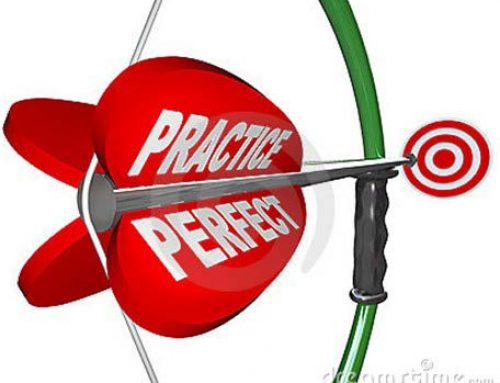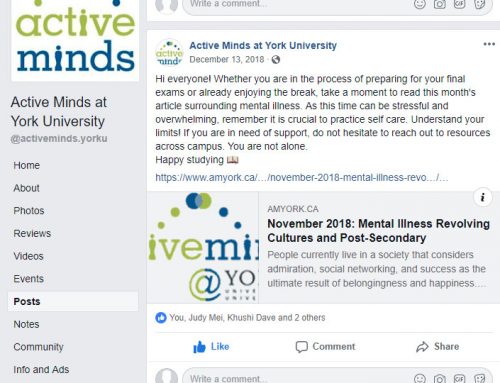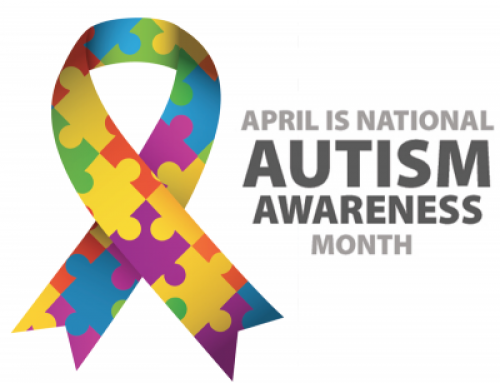The holidays can be a very stressful time. From social gatherings to financial debt, those who are experiencing mental distress and/or illness can attest to the fact that the festive season seldom feels so in its midst. Most of us let out a big “sigh” after it’s all over. How can such a season, characterized by gift-giving and happiness, lead to mental distress and misery? Quite easily. A recent study found that 61% of millennials and 65% of gen Xers reported moderate to high stress during the holiday season1 – financial concerns being the most prevalent reason. Aside from the baseline holiday stress experienced by most people, the season may be even more difficult to get through for those suffering from mental health problems. For those suffering from social anxiety, the holiday parties and family dinners may trigger further anxiety and panic attacks. Likewise, for those suffering from addiction illnesses, those gatherings might enable substance use. For those estranged from family/friends and suffering from depression, the holiday season may intensify the feelings of loneliness and hopelessness. For those who may have experienced a recent loss, sitting down at a family dinner may bring about bouts of depression. Those same family dinners may also trigger those already suffering from eating disorders, which also often suffer from anxiety and depression2. The list can go on and on. Perhaps a universal source of mental distress is the expectation to project happiness even if one doesn’t feel it inside.
The good news is that there are ways to mitigate holiday stress such that one may finally enjoy the holiday cheer. However, before we discuss those ways, we must briefly understand the psychology of holiday stress. Overall, the holidays are especially stressful due to an increased demand in ‘shifting’ – a term used to describe a cognitive ability to shift attention from different tasks and adapt to different environments and circumstances3. You probably shift on a daily basis – activities such as multitasking, memorizing, organizing are all examples of it. However, during the holiday season, the necessity to shift is in a greater demand due to an increase in various responsibilities, such as gift purchasing, dinner hosting, party organizing and so on. Even a small family dinner may cause one to feel a responsibility to put on a smile regardless of how one might be feeling that day. As described by Dr. Ellen Braaten, an HMS associate professor of psychology at Massachusetts General Hospital, the brain’s prefrontal cortex resultantly goes into overdrive. What ensues is a positive feedback loop of more stress, decreased memory and decreased production of new brain cells. In other words, Dr. Braaten describes it as an acute stress reaction, a sort of fight-or-flight response, and we all know how damaging those can be in the long-term.
First and foremost, the best way to manage holiday stress is put your mental health first. If you feel that a holiday party might be too much right now, learn to say no. There is nothing wrong with taking care of oneself – you should absolutely not see it as giving up and running away from your problems. Your health is priority and you know yourself best; just because someone else might have no issue walking into a 100 people-filled party, doesn’t mean you should if it causes you distress. We are all different; part of what propagates mental health stigma is the belief that “people should just suck it up and get over it”. The statement cannot be anymore absurd. Part of successful mental health management is recognizing when one’s boundaries are being pushed too far and when one should put oneself first. By avoiding further exasperation of your mental state during a season when everyone’s baseline stress levels are already high, you preserve your mental and physical wellbeing. If you feel you cannot commit to a certain responsibility, don’t feel obligated to. Forcing yourself to do something that will cause you mental distress will only cause more of that ‘fight-or-flight’ response in your body and mind, which will not help any pre-existing mental health condition(s). In addition, it is always best to seek advice from a mental health professional should you feel conflicted about how to best mitigate your way through the holidays. Remember, when you practice good self-care, you are more available to help and give back to others without feeling resentment.
Now that we have gotten the most important tip out of the way, we can discuss other things you can try to do to make the holidays feel genuinely cheerful. As mentioned before, part of what makes the holidays so stressful is an increased demand in shifting. Therefore, one solution consists of planning ahead and compartmentalizing tasks. You may want to put together a to-do list and/or a shopping list. It’s important to keep all the tasks at hand within realistic boundaries. In other words, since finances tend to be the biggest culprit in holiday stress, arrive at a realistic budget before you start shopping. Nowadays, most of the shopping can be done online which can allow you to find gifts that are within your budget easily. Surely, it is best to plan ahead and begin these lists in advance. Similarly, kindly delegate tasks to your willing loved ones so you do not end up biting off more than you can chew. Another important tip is to stick to healthy habits. When we are stressed, we are more likely to turn to instant gratification to comfort ourselves. People may find that they are more likely to consume very sugary foods, more caffeine, restart smoking and partake in other unhealthy habits. We also know that it is nearly impossible to just break a habit – rather, it is more effective to replace a bad habit with a good one. Thus, one helpful tip is instead of turning to an unhealthy habit as mitigation, do something else – for example, right away go for a walk outside for 15 minutes. Better yet, if you have an opportunity to, exercise. Any physical activity has been proven to boost endorphins and will elevate your mood. Finally, being generous and giving back to others is one of the most powerful ways to lower stress. Science has backed up the role of generosity in stress management for a while – primarily how giving back to others lowers cortisol levels (recall: cortisol is the stress hormone)4. To clarify, generosity doesn’t entail just gifting materialistic things. A meta-analysis performed by Jenkinson et al. found a strong link between volunteering and improved mental health (including lower risk of depression), increased life satisfaction and even a lower risk of dying early5. Giving back to the community and the less fortunate will not only make a difference in someone else’s day (and possibly life) but also yours. The holiday season sheds light on those who need help, if one is willing to pay attention. Think of all the charities, food drives and shelters that are helping those who may not have the privilege of having their stress based around which gifts they should buy their friends, rather, if they will have a roof over their head tomorrow. Many of those in need also suffer from mental health illnesses that go unnoticed. Though it is not always wise to compare different people in different circumstances, recognizing your blessings should invoke gratitude and potentially an incentive to help those in need. These are some of the basic tips to manage holiday stress that are proven to be effective. Remember, when you need help, it is always best to reach out to someone who cares for you. Avoid isolating yourself if you feel you are not in a good mental place. Whatever holiday you may celebrate this season, remember that your mental health comes first. Active Minds wishes you a warm and happy holiday season!



























